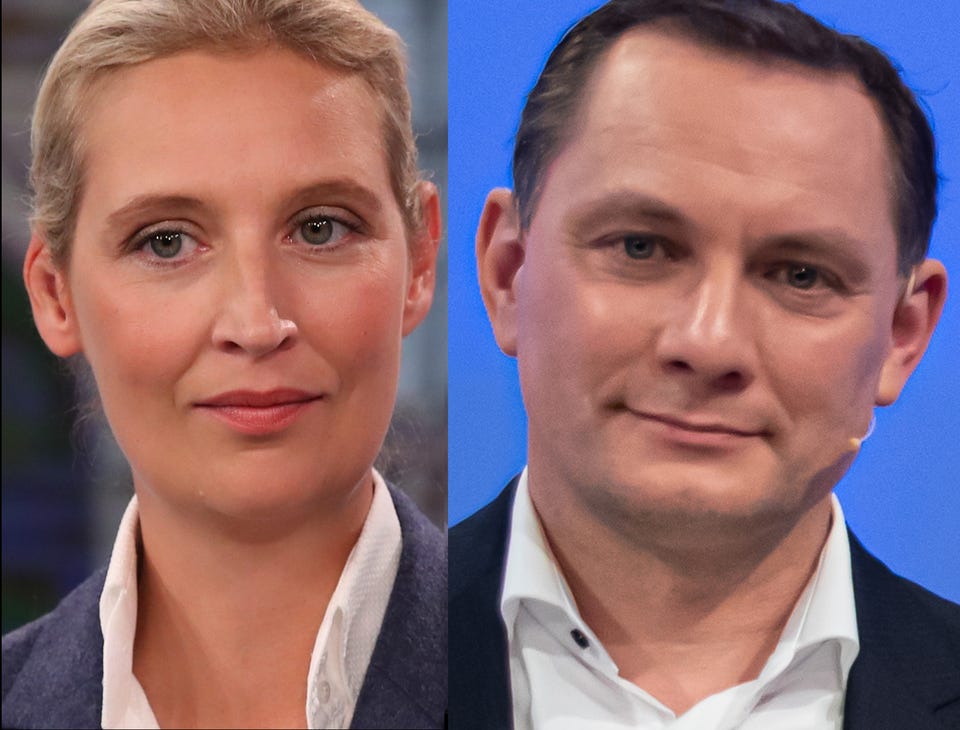'Putin Hasn't Done Anything to Me': Germany's Far-Right Has a Russia Problem
...But they might win anyway

German public television interviewers often throw softballs, but that wasn’t the case when ZDF host Markus Lanz interviewed Alternative für Deutschland co-leader Tino Chrupalla on November 12. The far-right Chrupalla launched into a long-winded explanation of how he thought the war in Ukraine started. He repeated Kremlin lies that Ukraine had repressed Russian-speaking minorities, and only perfunctorily condemned the 2022 full-scale invasion. “So that’s the harshest criticism you are making?” asked Lanz. Churapalla replied, “Putin hasn’t done anything to me,” adding that he doesn’t see any danger coming from Russia at the moment.
The comment highlighted an uncomfortable dynamic for the AfD, which, by many polls, is the country’s most popular party going into elections scheduled next for 2029: many of its members have an affinity for Vladimir Putin’s Russia. That view is out of step with most of the German public, where polls show that around four-fifths of Germans view Russia as a military threat.
And the AfD affinity towards Putin may be dangerous: Der Spiegel reported that AfD MPs have used their position to send numerous parliamentary inquiries about the details of military transport, countering drones, cyber defense, and critical infrastructure. (AfD members reject the accusation that they are sharing this information with the Russians but have not explained their purpose of the inquiries.) Germany has faced drone sightings which have closed airports as well as mysterious attacks on critical infrastructure. Many suspect that Russia is ultimately behind them.
The AfD’s posture towards Russia has caused a split within the party. The AfD’s pro-Russian sentiment plays well in the former communist East, where a sentimental view towards Russia remains common. But to gain power, the AfD needs to make further inroads in western Germany. AfD’s other co-leader, Alice Weidel, has sought to distance the party from Russia. While some members of her party plan to go to Sochi, Russia to an international conference for the BRICS grouping, she said that she wouldn’t go nor recommend it to her members. “We shouldn’t continue like this,” she told reporters in the German parliament on November 11. “We can’t afford it, and we don’t want to.”
Embracing Russia complicates the AfD’s effort to demolish the firewall that mainstream parties have erected against forming a coalition government with it. The center-right Christian Democratic Party (CDU), which governs Germany in a coalition with the center-left Social Democratic Party, has repeatedly ruled out cooperating with AfD. The AfD’s goal is to become so popular -- partly by demonizing the left -- that the firewall is no longer politically tenable and the CDU faces no choice but to work with it.
As an American living in Germany, this episode gives me Déjà vu about Trump’s second election.


